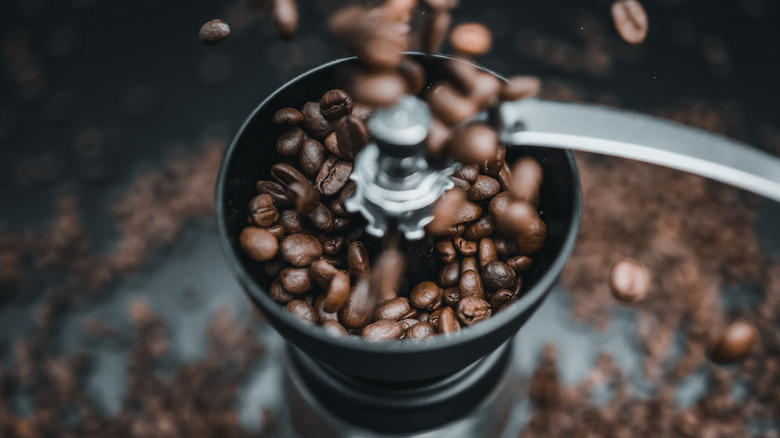Why Freshly Roasted Coffee Beans Should Rest Before Being Ground
Ask any coffee connoisseur and they'll likely tell you that coffee is better when the brew is made with freshly ground beans. And those java enthusiasts' coffee preferences can be backed by science as freshly ground coffee beans actually do taste better. That's because once coffee is ground and exposed to air, it's a race against the clock to retain flavor since oxygen slowly removes the coffee's oils, which are home to its flavor, per Java Presse.
While you'll want to limit the amount of time between grinding beans and brewing coffee, you should take an opposite approach if you decide to roast coffee beans at home.
The key to getting the most flavorful cup is to wait before you grind those freshly roasted beans. Just as you'd allow a juicy steak time to rest before you cut into it, or allow a bottle of wine time to breathe before enjoying a glass, freshly roasted coffee beans need a resting period in order for their flavors to fully develop — and to keep them from becoming bitter, per Coffee Craft Code.
Allow coffee beans time to bloom
As reported by Cafe Altura, the resting period is a process referred to as "blooming" or "coffee-off gassing" and it shouldn't be rushed. The outlet further explains that during this process, the roasted beans release aromatic compounds and gasses, including carbon dioxide, due to chemical changes the beans undergo during roasting: When heat is introduced to coffee beans, they release gas both during the roasting process and for a short time after they've been roasted, as explained by Perfect Daily Grind.
As outlined by Lens Coffee, freshly roasted beans need time to rest and off-gas in order for the flavors to fully develop. The amount of time that beans need to rest can vary based on the roasters' preferences, but as the outlet reports, most coffee shops advise resting the beans at least one day and up to three days before grinding them for optimal flavor.

